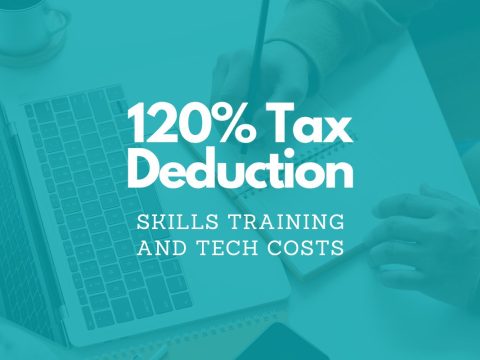Viewpoint – Summer 2013
Christmas
The office will officially close on Friday 20 December 2013, and re-open Monday 6 January 2014. We wish all our clients, colleagues and families all the best for an enjoyable and safe Christmas period.
Coalition tax changes
The new Coalition Government has announced they intend to repeal or change a number of tax measures proposed by the previous Government. A number of these will affect small businesses.
- Minerals resource rent tax
The Government intends to repeal the minerals resources rent tax (MRRT) law with effect from 1 July 2014. An exposure draft was released on 24 October 2013. The Bill discontinues or changes some of the measures that were funded by the tax.
- Company Loss Carry Back
The Government plans to repeal the loss carry back rules from 1 July 2014. As a result, the only year that these rules will apply is for the financial year ended 30 June 2013. Thereafter, companies will once again only be able to claim their losses as a deduction against future profits.
- Reduction in the small business instant asset write-off threshold
From 1 January 2014 the immediate deduction for depreciating assets for small business entities (SBE) will reduce from $6,500 to $1,000. The assets must be used or installed ready for use prior to 1 January, 2014 to comply with the $6,500 immediate deduction write-off.
URGENT ACTION – We sent a newsflash to clients earlier advising that if you were planning to buy depreciating assets worth less than $6,500 you should consider doing so before 31 December 2013 to take advantage of the instant write-off before it is reduced.
- Repeal of accelerated depreciation for motor vehicles
The $5,000 immediate deduction for motor vehicles will also be repealed from 1 January 2014. Once again SBEs have until 31 December 2013 to take advantage of this deduction.
- Re-phasing the Superannuation Guarantee (SG) percentage increase
The SG percentage was to increase from 9.25% to 9.5% starting 1 July 2014 gradually increasing to 12% by 1 July 2019. The government has announced they will pause the SG at 9.25% and increase it to 9.5% from 1 July 2016.
- Repeal of the low income superannuation contribution (LISC)
From 1 July 2013 individuals earning up to $37,000 a year will no longer receive a refund for contributions tax paid on concessional contributions.
- Repeal of the income support bonus
The income support bonus paid twice annually to eligible social security recipients will be repealed.
- Repeal of the school kids bonus
The school kids bonus will be repealed. This will be repealed from the date of amendment.
Other changes
The government has set a deadline of 1 December to resolve uncertainty over dozens of taxes and policies announced but not legislated. Some of those already announced are as follows:
- Cap on self-education expenses
The government announced on 6 November 2013 that they will not proceed with the $2,000 cap on self-education expenses announced in the last budget.
- Fringe Benefit Tax (FBT) changes Motor Vehicles
The FBT changes removing the statutory percentage formula for motor vehicles will not proceed.
- Superannuation pensions
The tax changes to superannuation pension earnings above $100,000 a year will not become law.
The review of the remaining measures will be completed and announced before Christmas.
We are available to discuss how these changes may affect your business.
GST on buying and selling second-hand goods
Businesses involved in the buying and selling of second-hand goods (second-hand goods traders) need to note the Australian Taxation Office has issued GST 2013/2 determination on the acquisition of second-hand goods for the purpose of sale in the ordinary course of business. This ruling sets out the guidance of what business activities constitute buying and selling goods.
Generally those businesses that are carrying on business are entitled to notional input tax credits even though there is actually no input tax credits attached to the goods purchased from non GST registered individuals.
If you have an interest in this area speak to us to ensure you are compliant.
Almost carrying on a share trading business
Clients with share portfolios sometimes query whether they could be considered share traders as opposed to investors. The Tax Office has been reluctant to classify taxpayers as traders. The implication is they can claim losses against other taxable income, whereas the ATO still get to tax profits of investors through the capital gains tax system, albeit sometimes at a discounted rate.
The Administrative Appeals Tribunal (AAT) confirmed in Hartley vs The Commissioner of Taxation (2013) decision that despite a number of factors pointing to a share trading business being carried on by the taxpayer, they were in fact a share investor.
It is interesting to note that the taxpayer had a considerable turnover, and in one year exceeded $900,000. There were more than 20 transactions in the year and sometimes as many as 40, and the taxpayer maintained a separate office and kept records and accounts of the transactions.
However, it was held that despite the above factors, the taxpayer was not carrying on a share trading business for the following reasons:
- The buying and selling of the shares was irregular and not routine.
- The taxpayer did not have a coherent plan that he applied systematically.
- The taxpayer did not set targets and could not demonstrate the conduct of background research.
- The taxpayer was engaged in other fulltime work.
There has been another recent case also favouring the Commissioner which confirms the level of scrutiny that should be applied when considering whether a taxpayer is carrying on a share trading business or is in fact, a share investor.
Tax treatment of deceased estates
As an update to the 2011/2012 Federal Budget, legislation was proposed to confirm the Australian Taxation Office (ATO) administrative practice of treating the Trustee of a Testamentary Trust in the same way as an executor of a deceased estate for Capital Gains Tax purposes. The ATO has now released a Practice Statement (LA 203/12) which sets out the administrative treatment pending legislation being introduced.
The effect of the Practice Statement means that when the Trustee of a Testamentary Trust transfers an asset that was held by the deceased estate to an ultimate beneficiary, any capital gain or loss that would otherwise arise should be disregarded (subject to the application of CGT event K3 which can apply when assets pass to certain beneficiaries such as non-residents and tax exempt entities).
In general terms, the ATO will accept returns as lodged until the proposed changes are passed by Parliament.
Workplace anti- bullying regime
The Fair Work Commission has announced procedures for its Anti-Bullying Regime which will be effective from January 2014.
What is workplace bullying?
Workplace bullying could be verbal, physical, social or psychological abuse. It could be in the form of
- Victimisation and discrimination
- Humiliating remarks
- Aggressive or intimidating behaviour
- Practical jokes
- Exclusion from an organisation’s events
- Unreasonable work expectations – being given pointless tasks, changing work hours to make it difficult or holding back information needed to deliver the task
- Ganging up, or other types of psychological harassment.
What is not considered bullying?
Certain management actions may not seem fair but cannot be construed as bullying. These include performance appraisals, transfers, demotions, meetings to address under-performance, investigating misconduct, refusal of a benefit relating to employment or not permitting an employee to return to work, based on a medical condition.
Bullying does not necessarily have to be while the worker is actively engaged at work. “At work” constitutes lunch breaks and lunch time activities onsite, after hours work trips, official events and working from home.
You don’t lose everything: what the trustee acquires in a bankruptcy
Being declared bankrupt is a stressful event for any person. Added to this is the confusion over what happens next to their assets and belongings. When a person becomes bankrupt, the individual’s assets vest in a Trustee. However, the Trustee does not take everything.
It is important to understand that there are limits on what does and does not vest in a Trustee upon bankruptcy. Generally, all property owned by a person or acquired during their bankruptcy, vests in the Trustee. This is called “divisible property” and is sold by the Trustee for the benefit of creditors of the bankrupt estate.
Certain assets are totally protected or protected to a particular value, meaning that the bankrupt may retain these assets up to the value of the specified limit. These assets are known as “non-divisible property”, and may include household necessities such as beds and fridges and other ordinary household items, tools of trade, motor vehicles and the proceeds of certain compensation claims.
The limits as to how much of each asset a bankrupt is able to retain, are indexed and updated twice per year. Currently, a bankrupt may retain tools of trade, which also includes reference books, plant and equipment and professional instruments, to the value of $3,550. Similarly, a bankrupt is currently allowed to retain a vehicle with a maximum value or equity of $7,200, provided the vehicle is used primarily for transport.
There are also limitations as to what property is considered divisible. According to the Bankruptcy Act, personal property belonging to the individual that has a sentimental value and is identified by a resolution made by creditors before it is realised by the Trustee, may be retained. Personal property may also be retained if it is of a kind detailed in the Bankruptcy Regulations, which provides for awards made to the bankrupt in recognition of sporting, military, academic or cultural achievements.
This Regulation does not extend to monetary awards.
A bankrupt’s money also vests in the Trustee. This includes money kept in all bank accounts held by the bankrupt. However, the Trustee may allow a bankrupt to retain some money to cover ordinary living expenses in the short term.
Property is not automatically returned to an individual following their discharge from bankruptcy. Upon discharge, which ordinarily takes place three years after initial bankruptcy, any property which the bankrupt disclosed in their Statement of Affairs, or which was acquired by the bankrupt after the date of bankruptcy and disclosed to the Trustee, will continue to vest in the Trustee for a further six years. Following this, if the property has not been realised, it may be returned to the former bankrupt.
Gifting to business clients
At this time of the year it is common to provide gifts to existing clients and customers as an act of goodwill and as a thank you for their custom and support of your business.
As the gift is an expense to your business it is generally considered to be a tax deduction.
The ATO has considered the act of gift making to clients and several cases exist where the tax treatment has been tested in the courts. If there is an expectation that the gift will either generate future business from the client or motivate them to refer your services to others, it is considered that the expenditure of the gift was in the nature of business promotion.
In cases where the gift is provided to a client up to 12 months after the cessation of the services, there is a prospect that the expenditure may produce assessable income in the future. Consequently the ATO considers the gifting expenditure to be incurred in carrying on a business for the purpose of gaining or producing assessable income.
It should be noted that a gift does not constitute the provision of entertainment which is not deductible.
To clarify how the gifts you intend to provide clients or customers may be interpreted by the ATO, talk to us.
Deductibility of the Office Christmas Party
Exemptions to Fringe Benefits Tax generally apply if the cost of the end-of-year party is less than $300 per person and conditions are met.
Christmas party costs will be exempt from FBT if they are provided on a working day on business premises to current employees.
Employers can give gifts or presents to employees that meet the minor benefits exemption and be less than $300.
When the gift is given at the Christmas party, it is a separate benefit to the party cost and subject to a separate $300 limit per employee.
A restaurant meal will fall under the minor benefits exemption if it is less than $300 per head.
Business management for Christmas
Christmas can either represent boom time or downtime for your business. As a result, business planning can help ensure you are better placed for the new year.
Debtors often attempt to start postponing payment until the new year. Accordingly, there should be a strong focus on debtor collection before Christmas to ensure the cash flow is available for January and February.
It is your opportunity to run down accrued annual leave liabilities of your employees. Review staff annual leave entitlements, particularly if the business is going to be quiet in January.
Whilst many small businesses are willing to accommodate staff requirements, it is equally important to recognise that accrued leave liabilities are a future cost. As such it is better to deal with them on an on-going basis so they don’t accumulate and become a significant problem.
Stock management is also critical at this time of year, particularly for retail.
In other businesses, it may be a time to make sure that stocks are in place, so when the business returns to work in January, production can commence immediately rather than waiting for suppliers to return from holidays to commence stock deliveries.
Your bank account also must be prepared for the festive season as some businesses do trade at a loss over the Christmas period. Cash reserves need to be in place. This may also lead to a focus on generating sales between now and Christmas to ensure that there is adequate cash coming into the business.
Disconnect during holidays
The use of technology has revolutionised the way we work. No longer do you need to be in the office to check emails – you can be contactable 24/7. But what are the boundaries?
- Do you continually check emails while you are on holidays?
- Do you respond to work emails while you are on holidays?
- Is it appropriate to email someone when you know they are on leave?
Before you go on holidays set your out-of-office email reply telling people you are on leave. Do not add that “you will be checking emails intermittently during this time” as this quiet logically creates the expectation that you will still be responding to emails during your break.
Better to have someone else check your emails if it is necessary, or make a decision as to whether you will check emails at a specific time, for example 30 mins each morning.



